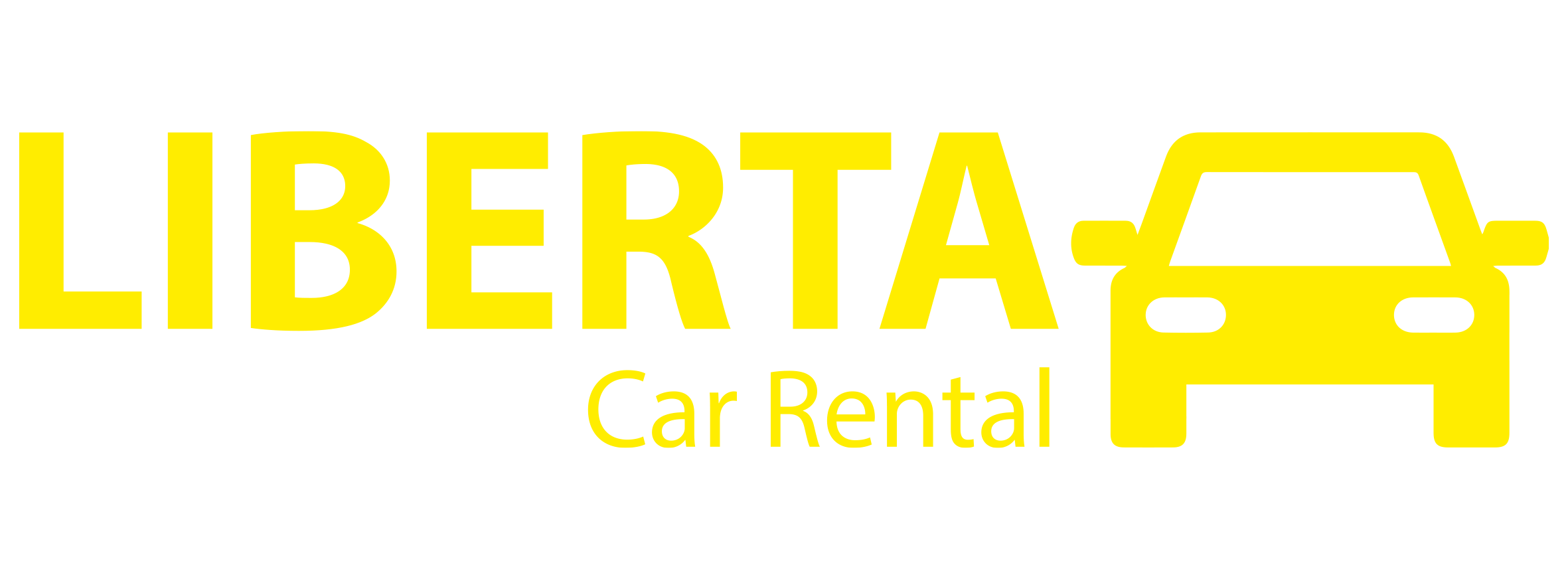Mauritius is a popular destination for travelers seeking beautiful beaches, rich culture, and unique experiences. If you’re planning a trip to this tropical paradise, understanding the Mauritius currency is essential for managing your finances during your stay. In this complete guide, we will cover everything you need to know about the currency of Mauritius, including exchange rates, where to exchange money, and practical tips for using cash and cards on the island.
Table of Contents
- What is the Currency of Mauritius?
- Currency Exchange: Where and How
- Using Credit and Debit Cards in Mauritius
- ATMs and Cash Withdrawal
- Tips for Managing Money in Mauritius
- Frequently Asked Questions (FAQs)
- Why Choose Liberta Car Rental for Your Trip to Mauritius
What is the Currency of Mauritius?
The official currency of Mauritius is the Mauritian Rupee, abbreviated as MUR. The symbol for the Mauritian Rupee is ₨, and you will often see prices written as “Rs” or “MUR” in shops, restaurants, and hotels. The currency is available in both coins and banknotes:
1. Coins in Mauritius
- Coins are available in denominations of 5 cents, 20 cents, 50 cents, 1 rupee, 5 rupees, 10 rupees, and 20 rupees.
- Smaller coins such as 5 and 20 cents are generally used for small purchases, like snacks or public transportation.
2. Banknotes in Mauritius
- Banknotes are available in denominations of 25 rupees, 50 rupees, 100 rupees, 200 rupees, 500 rupees, 1,000 rupees, and 2,000 rupees.
- The larger banknotes, such as the 1,000 and 2,000 rupee notes, are often used for significant expenses like hotel stays, shopping, or dining at upscale restaurants.
Currency Exchange: Where and How
If you are traveling to Mauritius, it’s essential to understand how and where to exchange your currency for Mauritian Rupees. Here are some options:
1. Currency Exchange at the Airport
The Sir Seewoosagur Ramgoolam International Airport in Mauritius has several currency exchange counters where you can exchange your money upon arrival. These counters offer a convenient way to get your initial local currency, but the exchange rates may be slightly higher compared to other options.
2. Banks
Banks are a reliable place for exchanging currency in Mauritius. Major banks such as State Bank of Mauritius (SBM), Mauritius Commercial Bank (MCB), and Bank One offer currency exchange services with competitive rates. You can find bank branches in major towns such as Port Louis, Curepipe, Quatre Bornes, and Grand Baie.
- Bank Hours: Most banks in Mauritius are open from 9:00 AM to 3:00 PM, Monday to Friday, and may also operate for a few hours on Saturdays.
3. Currency Exchange Bureaus
Currency exchange bureaus can be found in major tourist areas, including Port Louis, Grand Baie, and Flic en Flac. These bureaus often provide better exchange rates compared to airport counters, and they offer a quick and convenient way to get Mauritian Rupees.
4. Hotels
Many hotels in Mauritius offer currency exchange services, but the exchange rates are generally less favorable compared to banks or exchange bureaus. It is advisable to use hotels for currency exchange only if you need a small amount of cash in an emergency.
5. Using International Credit/Debit Cards
Another option for accessing local currency is to use your international credit or debit card to withdraw cash at an ATM. Most ATMs in Mauritius accept major cards such as Visa and Mastercard.
Using Credit and Debit Cards in Mauritius
In Mauritius, credit and debit cards are widely accepted, especially in urban areas, tourist attractions, and high-end establishments.
1. Where Credit Cards Are Accepted
- Hotels and Resorts: Most hotels and resorts in Mauritius accept major credit cards such as Visa, Mastercard, and American Express.
- Restaurants and Shops: Upscale restaurants, shopping malls, and boutiques will accept credit cards. However, smaller local eateries and shops, especially in rural areas, may only accept cash.
- Car Rentals and Tours: Companies like Liberta Car Rental also accept card payments, making it easy for travelers to book a vehicle without carrying a large amount of cash.
2. Contactless Payments
Contactless payment methods are becoming increasingly popular in Mauritius. Many modern payment terminals allow you to use tap-and-go technology for smaller purchases, making transactions quick and easy.
3. Credit Card Fees
When using your international credit or debit card in Mauritius, keep in mind that foreign transaction fees may apply. It’s best to check with your bank before traveling to understand any fees associated with international transactions.
ATMs and Cash Withdrawal
ATMs are widely available in Mauritius, making it easy for travelers to withdraw cash in local currency. Here’s what you need to know about using ATMs in Mauritius:
1. Availability of ATMs
ATMs can be found in most towns and tourist areas, including Port Louis, Curepipe, Grand Baie, and Flic en Flac. They are typically located at bank branches, shopping malls, and popular public areas.
2. ATM Charges
While most local banks do not charge a fee for using their ATMs, your home bank may apply a foreign transaction fee or a withdrawal fee. To minimize fees, it’s a good idea to withdraw larger amounts at a time rather than making multiple smaller withdrawals.
3. ATM Safety Tips
- Use ATMs in Well-Lit Areas: Always use ATMs in well-lit and secure areas, such as bank branches or shopping malls.
- Check for Skimming Devices: Be cautious of card skimming devices and cover your hand while entering your PIN for added security.
Tips for Managing Money in Mauritius
To ensure a smooth experience while managing your finances during your trip to Mauritius, consider the following tips:
1. Carry Cash for Small Transactions
While credit and debit cards are widely accepted in urban areas, smaller local shops, markets, and public transportation often only accept cash. It’s advisable to carry some small denomination notes and coins for such expenses.
2. Keep Different Denominations
When exchanging currency, try to obtain a mix of both large and small denominations. Small notes are useful for buying snacks, paying for taxi rides, and tipping, while larger notes are suitable for major purchases like dining at restaurants or shopping.
3. Tipping Etiquette
Tipping is not compulsory in Mauritius, but it is appreciated. For good service, you can tip 5-10% of the bill at restaurants or a small amount to hotel staff and taxi drivers. Having cash in smaller denominations makes tipping easier.
4. Exchange Leftover Currency
Before leaving Mauritius, consider exchanging any leftover Mauritian Rupees back to your home currency. It may be difficult to exchange MUR outside of Mauritius, so it’s best to convert it before departure at the airport or a local bank.
Frequently Asked Questions (FAQs)
1. What is the best currency to use in Mauritius?
The best currency to use in Mauritius is the Mauritian Rupee (MUR). While some hotels and tourist shops may accept foreign currencies like US Dollars or Euros, you will get better rates if you use the local currency.
2. Can I use US Dollars in Mauritius?
Some hotels, resorts, and tourist shops may accept US Dollars or Euros, but it’s advisable to use Mauritian Rupees for better value and ease of transactions.
3. Are credit cards widely accepted in Mauritius?
Yes, credit cards such as Visa, Mastercard, and American Express are widely accepted, particularly in hotels, upscale restaurants, shopping malls, and tourist attractions.
4. Where can I exchange currency in Mauritius?
You can exchange currency at airports, banks, currency exchange bureaus, and hotels. Banks and exchange bureaus typically offer the best rates.
5. Do I need to carry cash in Mauritius?
Yes, it is advisable to carry cash in small denominations for small purchases, tipping, and transactions at local markets or in rural areas where cards may not be accepted.
Why Choose Liberta Car Rental for Your Trip to Mauritius
Exploring Mauritius by car is one of the best ways to see everything the island has to offer—from beautiful beaches and charming villages to hidden natural wonders. Here’s why Liberta Car Rental is the ideal choice for your trip:
1. No Security Deposit Required
Unlike many car rental companies, Liberta Car Rental offers a no deposit option on select models, making it easier for you to rent a car without any financial stress.
2. Convenient Payment Options
We accept credit and debit cards, so you don’t have to worry about carrying large sums of cash. Our payment process is secure and straightforward, ensuring a hassle-free experience.
3. Flexible Pickup and Drop-Off
We provide airport pickup at Sir Seewoosagur Ramgoolam International Airport and hotel delivery throughout the island, including popular areas like Flic en Flac, Grand Baie, and Belle Mare.
4. Comprehensive Insurance Coverage
All our rental vehicles come with comprehensive all-risk insurance, providing you with peace of mind during your journey.
Contact us today to book your car rental and explore Mauritius at your own pace:
- Email: [email protected]
- WhatsApp: +23052502897
- Website: Liberta Car Rental





